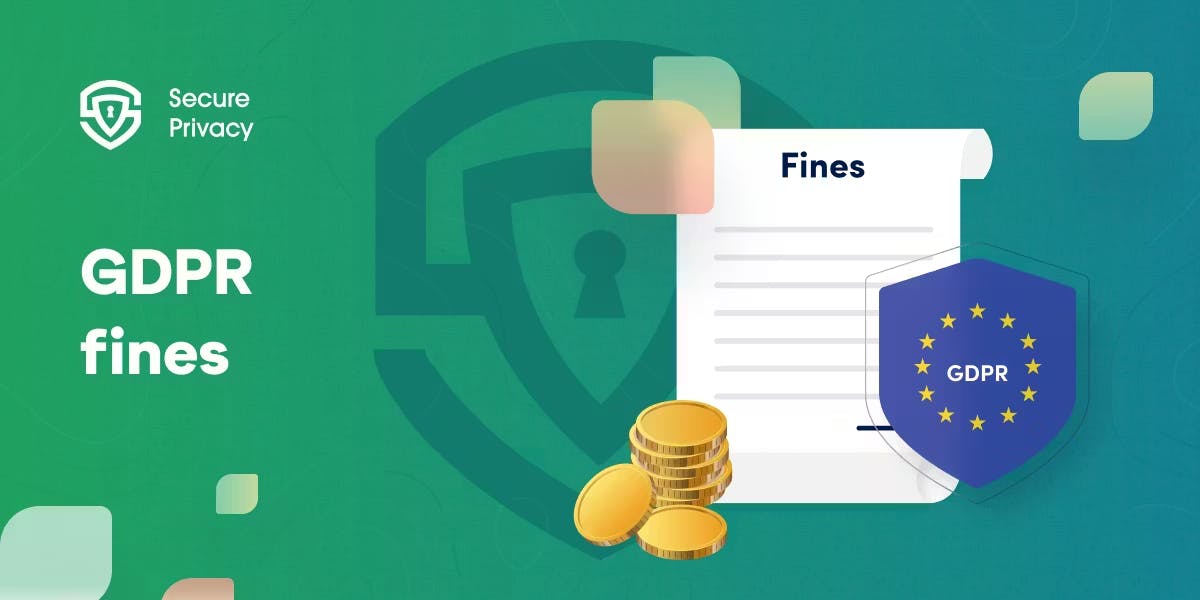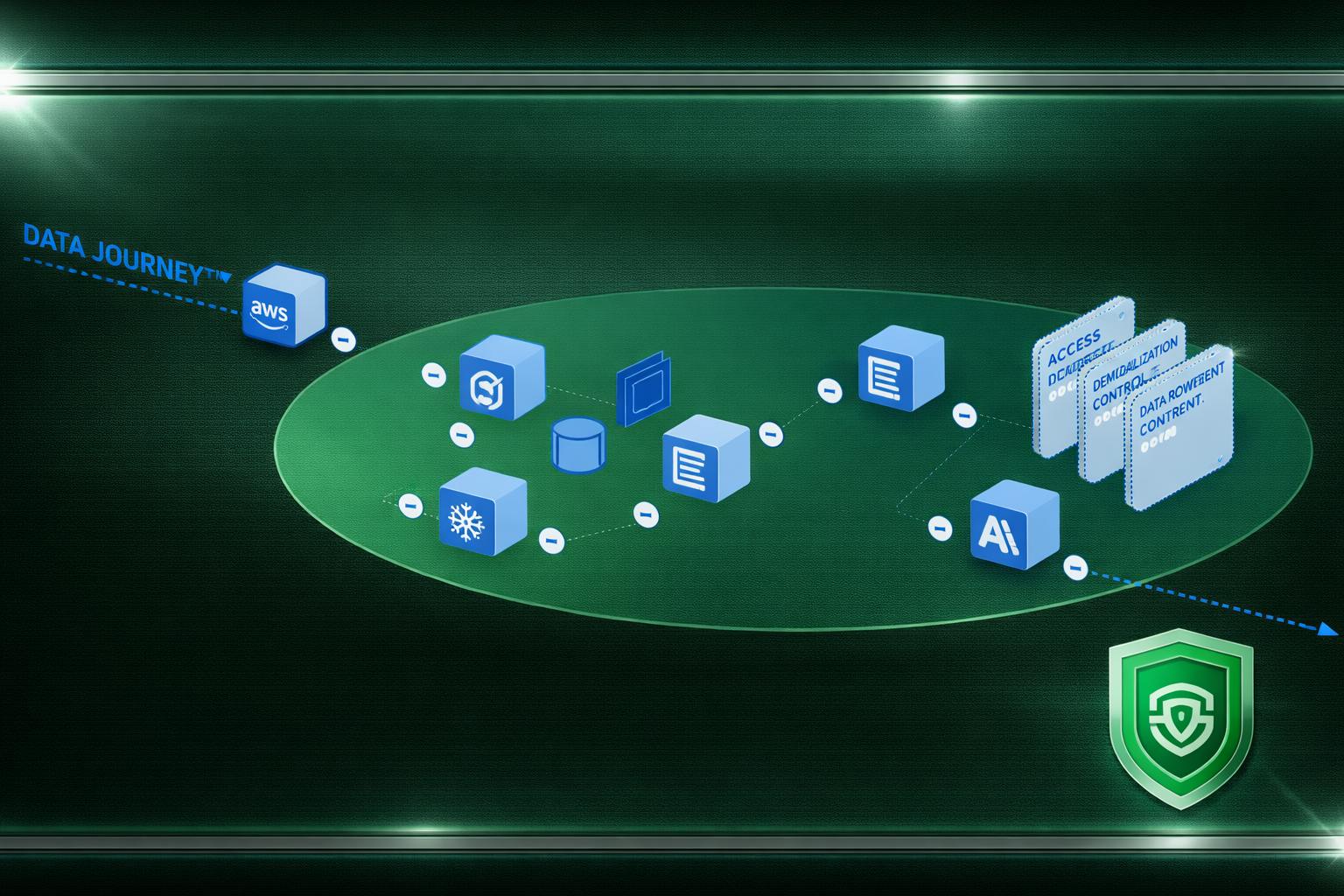Telephone Consumer Protection Act Compliance in 2025: A Complete Guide
Your marketing campaigns are generating leads, but every outbound call or SMS could expose your business to penalties reaching $1,500 per violation. With TCPA class action filings surging 95% year-over-year and recent verdicts exceeding $925 million, violations represent existential threats to modern businesses using automated communications.
TCPA (Telephone Consumer Protection Act) regulations have progressed from basic telemarketing oversight to comprehensive digital communication governance covering voice calls, SMS marketing, AI-generated messages, and automated systems. Organizations without systematic frameworks face unprecedented litigation risks and financial exposure.
In this full guide, you'll discover current requirements and 2025 regulatory updates, implement compliant consent management and opt-out procedures, and establish monitoring systems that protect your business while enabling effective customer communication strategies.

Prioritizing user privacy is essential. Secure Privacy's free Privacy by Design Checklist helps you integrate privacy considerations into your development and data management processes.
What Is the Telephone Consumer Protection Act?
The Telephone Consumer Protection Act, enacted in 1991 and administered by the Federal Communications Commission (FCC), represents the primary federal framework governing automated communications to consumers. Originally designed to address telemarketing abuse, the Act has expanded to encompass modern digital communication channels including SMS marketing, AI-generated voice messages, and sophisticated automated calling systems.
The legislation establishes strict requirements for businesses using automatic telephone dialing systems (ATDS) to contact wireless and residential numbers, artificial or prerecorded voice messages without explicit consent, SMS marketing campaigns requiring prior express written consent, unsolicited fax advertisements with limited exceptions, and calling hour restrictions limiting contact to 8 AM - 9 PM in recipient's time zone.
The Act provides consumers with private rights of action, enabling individual lawsuits and class action litigation without requiring proof of actual damages. This unique enforcement mechanism has created a cottage industry of litigation, with over 80% of current filings proceeding as class actions targeting systematic communication violations.
Modern regulatory adherence extends beyond traditional telemarketing to encompass sophisticated marketing automation, customer relationship management systems, and emerging technologies like AI-generated voice communications that fall under federal regulatory oversight.
Key Requirements and Consent Standards
Prior Express Written Consent (PEWC) Framework
Federal law mandates clear and conspicuous written consent for marketing communications using automated systems or prerecorded messages. Compliant consent requires written format documentation with electronic signatures acceptable under E-SIGN Act standards, clear disclosure through explicit statements of consent to receive automated marketing communications, seller identification specifying the authorized business or brand, standalone opt-in mechanisms not bundled with other agreements, and purchase condition disclosures clearly stating that consent is not required for purchase.
Effective consent language must be specific and unambiguous. Examples include statements like "By checking this box and clicking submit, you agree that we may call you at the number you entered with reminders, offers and other information, including using automated technology, text and recorded messages. Consent is not a condition of purchase. Reply STOP to opt out. Standard rates apply."
Do Not Call Registry Requirements
Multi-level DNC requirements create comprehensive opt-out obligations including National DNC Registry maintenance through the FTC-managed federal database requiring quarterly updates, state DNC registries with individual state requirements and varying update frequencies, and internal DNC lists maintaining company-specific opt-out databases for all customer requests.
Current federal DNC violation fines reach $53,088 per violation as of 2025, representing separate penalties from statutory damages. Organizations must maintain comprehensive screening procedures across all communication channels to avoid multiple penalty exposure.
Reassigned Numbers Database Protection
The FCC-mandated Reassigned Numbers Database, operational since November 2021, provides safe harbor protection against liability for calls to reassigned numbers. The query response system returns "Yes" indicating the number was permanently disconnected on or after consent date providing no safe harbor, "No" indicating safe harbor may apply because the number was not disconnected since consent, or "No Data" providing no safe harbor due to insufficient disconnection history.
Implementation requirements include paid RND subscription access, pre-call verification through database queries before each communication attempt, and comprehensive record maintenance documenting all queries and responses for audit purposes.
2025 Regulatory Updates
Enhanced Revocation Requirements (April 11, 2025)
Significant regulatory changes effective April 2025 fundamentally alter opt-out processing requirements. The "any reasonable method revocation" rule enables consumers to revoke consent through text messages, email communications, voicemail recordings, or verbal communication rather than requiring specific "STOP" replies.
Processing timeline reductions mandate honoring opt-out requests within 10 business days, reduced from the previous 30-day standard. Cross-channel application requirements mean revocation through one communication channel affects all communication types across the organization.
Confirmation text allowances permit one-time confirmation messages, but senders must cease all communications if recipients don't respond, creating additional regulatory complexity for marketing automation systems.
One-to-One Consent Rule (Delayed to 2026)
The comprehensive scope expansion requiring individual consent per seller has been postponed to April 11, 2026, providing businesses additional preparation time. This rule will require separate consent for each entity within corporate structures, potentially affecting affiliate marketing, lead generation, and multi-brand communication strategies.
AI Voice Technology Integration
The FCC's February 2024 declaratory ruling determined that AI-generated voices constitute "artificial voices" under federal law, requiring full regulatory adherence. Immediate requirements include prior express consent mandates for AI voice calls, identification disclosure requirements, opt-out mechanism provision, and application of all restrictions without AI-specific exemptions.
AI voice technology creates increased liability exposure as sophistication makes detection difficult, potentially leading to unknowing violations during customer service, marketing, or automated communication processes.
Penalties and Litigation Landscape
Financial Exposure and Penalty Structure
Individual TCPA violations carry $500 base penalties, trebled to $1,500 for knowing or willful violations, with no cap on total damages enabling unlimited exposure. The four-year statute of limitations allows extensive lookback periods for systematic violations across large customer databases.
Recent significant verdicts demonstrate severe financial consequences, including a $925 million jury verdict for 1.8 million ATDS violations and numerous class action settlements reaching tens of millions of dollars for organizations with inadequate procedures.
2025 Litigation Statistics and Trends
Record-breaking case volumes include 1,052 class actions filed in the first half of 2025, representing a 95% increase year-over-year. Q1 2025 experienced 507 class actions versus 239 in Q1 2024, demonstrating a 112% increase, with over 80% of filings now proceeding as class actions rather than individual lawsuits.
Emerging litigation trends focus on time-of-day violations with significant increases in lawsuits alleging calls outside permitted 8 AM - 9 PM timeframes. Professional plaintiffs strategically provide consent, change numbers, and pursue litigation when businesses continue calling reassigned numbers, while new litigation targets businesses using AI-generated voices without proper regulatory adherence.
SMS Marketing Requirements
Text Message Regulatory Framework
SMS marketing requires prior express written consent for promotional texts, clear opt-out instructions in every message typically through "Reply STOP" mechanisms, time restrictions limiting messages to 8 AM - 9 PM recipient local time with stricter state variations, and sender identification in all messages.
The critical distinction between transactional and promotional messages determines consent requirements. Transactional messages including order confirmations, shipping notifications, appointment reminders, and account security notifications require only express consent, while promotional messages including sales offers, marketing campaigns, and cross-selling communications require written consent documentation.
SMS Implementation Standards
Effective SMS adherence requires double opt-in processes for unclear initial consent situations, consent verification through keyword campaigns, documentation storage for minimum five-year retention periods, and regular re-engagement for inactive subscribers using 12-18 month inactivity thresholds.
Modern SMS marketing platforms must integrate real-time consent verification, automated opt-out processing, comprehensive audit trails, and cross-channel consent synchronization to maintain regulatory standards across marketing automation workflows.
Call Center Regulatory Standards
Technology Solutions and Integration
Modern contact center platforms integrate regulatory features through natural language tools for rule creation, manually approved calling (MAC) systems for pre-call review, automated DNC scrubbing with real-time list updates, and comprehensive call recording storage for documentation.
Essential platform features include multi-channel consent management across voice, SMS, and email communications, curfew hour enforcement with automatic time zone awareness, reassigned number integration with automated RND queries, and comprehensive audit trails for regulatory documentation and defense preparation.
Operational Procedures and Training
Training requirements encompass regulation education covering current rules and updates, consent verification procedures before customer contact initiation, opt-out processing protocols with immediate implementation capabilities, and documentation standards for all customer interactions.
Agent procedures must include pre-call consent verification, proper identification and disclosure scripts, immediate opt-out processing capabilities, and comprehensive interaction documentation that supports defense during potential litigation.
Software Solutions for Regulatory Adherence
Technology Categories and Capabilities
Consent management platforms provide comprehensive regulatory adherence through real-time consent tracking across multiple touchpoints, automated monitoring with regulatory update integration, cross-platform integration with CRM and marketing systems, and audit-ready documentation with timestamped records supporting litigation defense.
Call center tools offer compliant autodialing with built-in regulatory restrictions, comprehensive DNC list management with automated updates, consent verification processes before call initiation, and performance monitoring with detailed metrics and reporting.
Professional list management services provide comprehensive DNC screening against federal and state registries, litigator database protection against known plaintiffs, real-time API integration with dialing platforms, and guaranteed protection offerings with zero-violation track records.
Implementation and Vendor Selection
Vendor selection criteria should emphasize regulatory expertise with dedicated focus and current rule knowledge, technology integration capabilities with existing business systems, guarantees and liability protection offerings, and comprehensive audit support with documentation services.
Implementation considerations include staff training on new systems and procedures, integration timeline planning with existing workflows, ongoing monitoring and optimization requirements, and regular review and update procedures to maintain current regulatory adherence.
Safe Harbor Protections and Risk Mitigation
DNC Safe Harbor Requirements
Federal law provides affirmative defense opportunities for businesses demonstrating reasonable practices and procedures to prevent violations. Qualifying procedures require written protocols documenting DNC adherence protocols, comprehensive personnel training on proper procedures and regulations, internal DNC list maintenance with regular updates, National DNC database access and utilization, and database usage restriction to regulatory purposes only.
Federal courts confirm that substantial adherence with safe harbor requirements can provide protection even without perfect compliance to all technical requirements, though organizations must demonstrate good faith efforts and systematic procedures.
Reassigned Numbers Protection
RND safe harbor protects against liability when proper consent was originally obtained from intended recipients, database queries were performed before call or text initiation, "No" responses were received indicating numbers were not reassigned, and comprehensive query documentation was maintained for audit purposes.
Safe harbor limitations only apply to reassigned number scenarios and do not protect against other violations like lack of initial consent or DNC violations, requiring comprehensive approaches beyond database utilization.
Building Comprehensive Programs
Policy Development and Documentation
Comprehensive frameworks require written procedures covering all requirements and organizational workflows, regular policy updates reflecting regulatory changes and business evolution, cross-departmental coordination between legal, marketing, and operations teams, and third-party vendor oversight ensuring adherence throughout the entire communication supply chain.
Documentation standards must exceed minimum regulatory requirements to demonstrate good faith efforts during potential litigation while providing clear operational guidance for staff and automated systems.
Technology Implementation Strategy
Effective technology includes consent management systems with real-time tracking capabilities across all customer touchpoints, automated checking before communication initiation, comprehensive record keeping with detailed audit trail maintenance, and regular system testing with verification procedures.
Integration requirements encompass existing CRM systems, marketing automation platforms, customer service technologies, and third-party communication providers to ensure comprehensive adherence across all customer interaction channels.
Monitoring and Risk Management
Proactive risk management requires initial training for all relevant personnel with regular refresher education, ongoing monitoring of regulatory updates and best practice evolution, performance tracking with detailed metrics and KPI monitoring, and comprehensive incident response procedures for potential violation discovery and remediation.
Regular audits should evaluate consent documentation quality, opt-out processing effectiveness, technology system performance, and staff adherence to established procedures while identifying improvement opportunities and risk mitigation strategies.
How Secure Privacy Delivers Excellence
Organizations facing regulatory challenges choose Secure Privacy for comprehensive consent management that addresses complex requirements while enabling effective customer communication strategies. Our platform combines deep expertise with advanced technology designed to automate adherence across voice, SMS, and digital communication channels.
Our solution provides industry-leading consent tracking with real-time verification capabilities, automated opt-out processing across all communication channels, comprehensive audit trails supporting litigation defense, and seamless integration with existing marketing and customer service technologies.
The platform's advanced monitoring delivers proactive risk identification, regulatory update integration, performance analytics, and comprehensive documentation that satisfies both regulatory requirements and business operational needs while protecting against costly violations.
Frequently Asked Questions
What's the difference between express consent and express written consent under TCPA?
Express consent allows informational communications like appointment reminders and account alerts, while express written consent is required for marketing communications using automated systems. Written consent must be documented, signed, and include specific disclosures about automated communications, seller identification, and opt-out mechanisms.
How quickly must businesses process opt-out requests in 2025?
New regulations effective April 2025 require processing opt-out requests within 10 business days, reduced from the previous 30-day standard. Businesses must honor revocation requests made through any reasonable method including text, email, voicemail, or verbal communication, not just traditional "STOP" replies.
Does the Reassigned Numbers Database provide complete protection?
RND safe harbor only protects against liability for calls to reassigned numbers when proper consent was originally obtained. It doesn't protect against other violations like lack of initial consent, DNC violations, time restrictions, or improper automated calling procedures. Comprehensive adherence requires multiple protective measures.
What are current penalty amounts and litigation risks?
Individual violations carry $500-$1,500 penalties with no cap on total exposure. Recent verdicts reached $925 million, and class action filings increased 95% year-over-year in 2025. Over 80% of cases now proceed as class actions, creating massive financial exposure for systematic violations.
How do AI-generated voice communications affect regulatory requirements?
The FCC determined in February 2024 that AI-generated voices constitute "artificial voices" under federal law, requiring full regulatory adherence including prior express consent, identification disclosures, and opt-out mechanisms. All restrictions apply without AI-specific exemptions, increasing liability exposure for emerging voice technologies.
What documentation is required to defend against litigation?
Comprehensive defense requires consent records with timestamps and IP addresses, opt-out processing documentation with response timelines, DNC list maintenance records and query results, staff training documentation and procedure adherence evidence, and technology system logs demonstrating monitoring and enforcement.
Can businesses still conduct B2B communications under TCPA?
The Act primarily applies to calls to residential numbers and wireless phones. B2B communications to established business relationships may have different requirements, but businesses must carefully verify recipient number types and relationship status. Mobile numbers used for business purposes may still trigger requirements.
What's the timeline for the one-to-one consent rule implementation?
The comprehensive one-to-one consent requirement has been delayed until April 11, 2026, providing businesses additional preparation time. This rule will require separate consent for each seller entity within corporate structures, significantly affecting affiliate marketing and multi-brand communication strategies.
Protect your business from costly violations with comprehensive management designed for modern communication needs. Request a demonstration to see how automated systems can eliminate regulatory risk while enabling effective customer communications.
Get Started For Free with the
#1 Cookie Consent Platform.
No credit card required

GDPR Fines and Penalties Explained: Calculation, Enforcement Trends, and Risk Mitigation
Your legal team forwards you a letter from a supervisory authority. A data subject complaint has triggered a formal investigation. Your company processed personal data without a valid lawful basis six months ago — a decision made by a product manager who didn't loop in privacy counsel. Now you're looking at a potential Tier 2 fine, which means up to €20 million or 4 percent of your annual global turnover, whichever is greater. You have thirty days to respond.

Privacy Governance for Financial Services: An Operational Framework for Banks and Fintech
Your compliance team has documented your GDPR obligations. But who monitors whether those obligations are being met on Tuesday afternoon when a new vendor API goes live?
- Privacy Governance
- Fintech

Consent Management for AI Training Data: How to Control LLM Crawlers and Enforce Opt-Out at Scale
Your organisation published a detailed research report six months ago. Last week, a competitor’s AI-powered tool started surfacing insights that mirror your proprietary methodology almost word for word. You did not license your content. You did not consent to its use. And you have no audit trail proving you ever tried to stop it.
- AI Governance
- Data Protection
